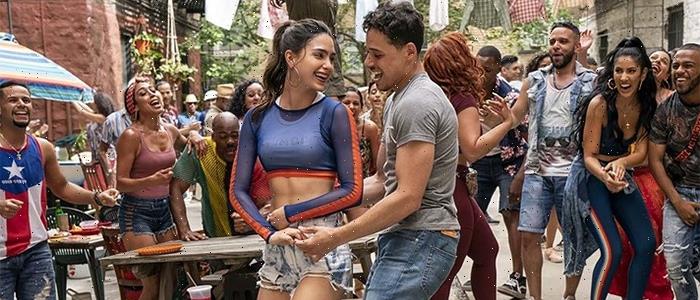Lin-Manuel Miranda, who created and starred in the stage musical of In the Heights, has responded to the criticisms of colorism in the feature film directed by Jon M. Chu. The criticism had been brewing over the past week on Twitter, after an interview with the cast and crew pointed out the lack of Afro-Latino actors in the film, despite being set in the famously diverse New York neighborhood of Washington Heights. Miranda issued an apology over the “hurt and frustration” caused by this erasure, and admitted that “we fell short.”
In the Heights has been hailed as a landmark of Latino representation on the big screen, with a majority Latino cast leading the musical spectacle that celebrates the rich multicultural landscape of New York City. But that landscape is surprisingly pale. In an interview with The Root last week, New York City native and writer of Afro-Cuban descent Felice León pointed out the film’s lack of Afro-Latino actors in the main cast, with most of the dark-skinned characters relegated to background roles. The only Black actor in the main cast is Corey Hawkins, who plays Benny.
Director Jon M. Chu responded, “We tried to get the people who were best for those roles, specifically,” noting that many of the dancers were darker skinned. Melissa Barrera, who plays Vanessa, added in her interview with León that there were “a lot of darker-skinned people” in the audition process, but ultimately the casting directors were “looking for just the right people for the roles.”
Only Leslie Grace, the actress who plays Nina, responded in kind to León’s concern over the lack of Afro-Latino actors, telling The Root that she “hope[s] to see my brothers and sisters that are darker than me lead these movies.”
Lin-Manuel Miranda Apologizes
Video of the interview went viral and stirred up debate over the erasure of Afro-Latino actors in the film. Eventually, Miranda took to Twitter to respond, issuing an apology over the lack of Afro-Latino representation in both the stage play and the film. He wrote:
“I can hear the hurt and frustration over colorism, of feeling still unseen in the feedback.
I hear that without sufficient dark-skinned Afro-Latino representation, the work feels extractive of the community we wanted so much to represent with pride and joy.
In trying to paint a mosaic of this community, we fell short. I’m truly sorry.”
But despite the failings of In the Heights, which had been criticized since the trailers first came out, Miranda’s response is good. It’s the proper way of acknowledging those failings and promising to do better, even if it comes a little late.
You can see The Root’s interviews on the issue of In the Heights‘ colorism below.
Source: Read Full Article


